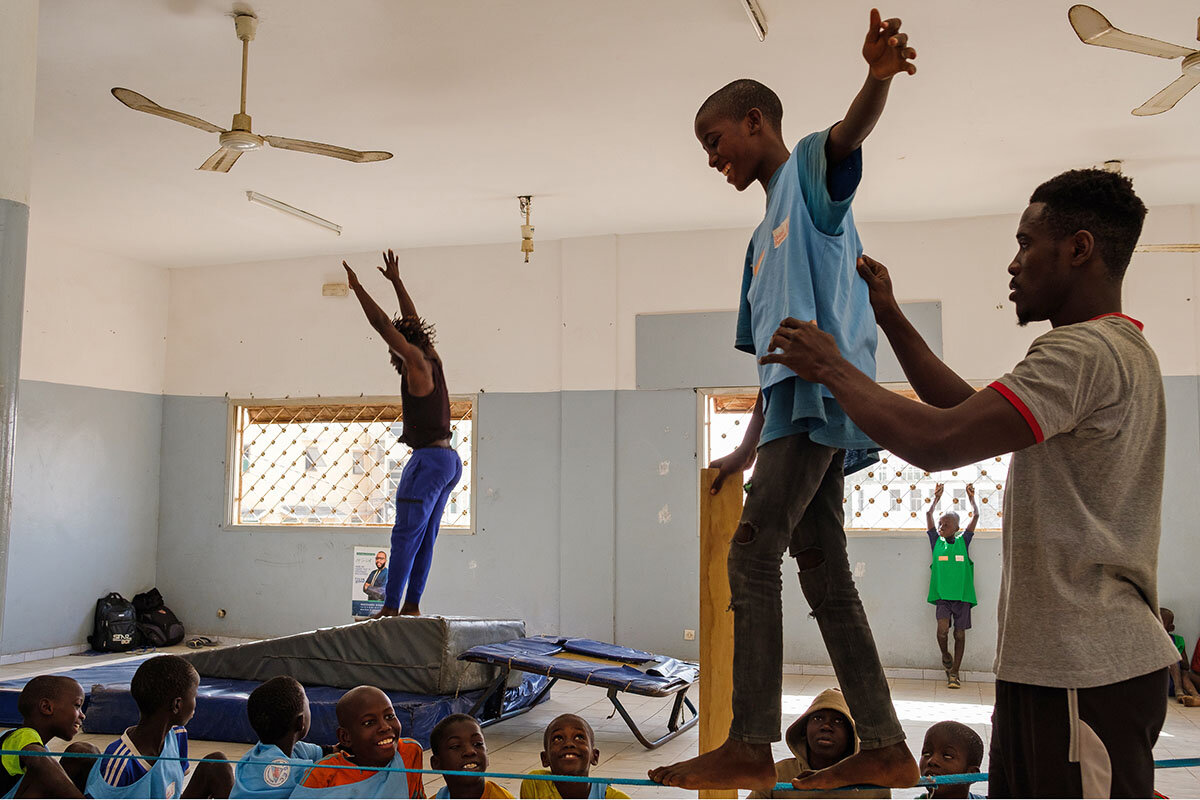In Pictures: A circus troupe offers hope to Senegal’s street children
Loading...
| Dakar, Senegal
Under the shade of a dusty canvas tent in the sweltering heat, five men rehearse for a circus tour of France the following week.
They make up Senegal’s only circus troupe, and each of them took long roads to get here, overcoming difficult childhoods, facing rejection by their families after they escaped abusive religious schools, and living on the street.
In Senegal, an estimated 100,000 boys between the ages of 5 and 15 are sent by their families to live and study at traditional schools to learn the Quran.
Why We Wrote This
A circus troupe in Senegal dedicated to helping abused children provides not only an opportunity for employment, but also a new way for the boys in its program to work together.
According to human rights groups, the talibés, as the boys are known, are vulnerable to exploitation and abuse from teachers. Talibés are forced to beg for money each day, and if their quota is not filled, they can be beaten and starved.
Modou Touré escaped his Quranic school; after taking up circus training in Europe, he returned to Dakar and founded Sencirk in 2006, providing free training to teens who escaped from their schools. The program allows them to work through traumatic experiences and to see paths toward a better future, whether that means working in the circus or reintegrating into society.
Senegal has seen increasing youth unemployment, which leads many young adults to consider emigration if they can’t find opportunities at home. Sencirk helps them see those opportunities.
An older performer and teacher at Sencirk, Sammi, explains, “We can teach them how to work together, how to grow, to believe in themselves.”









